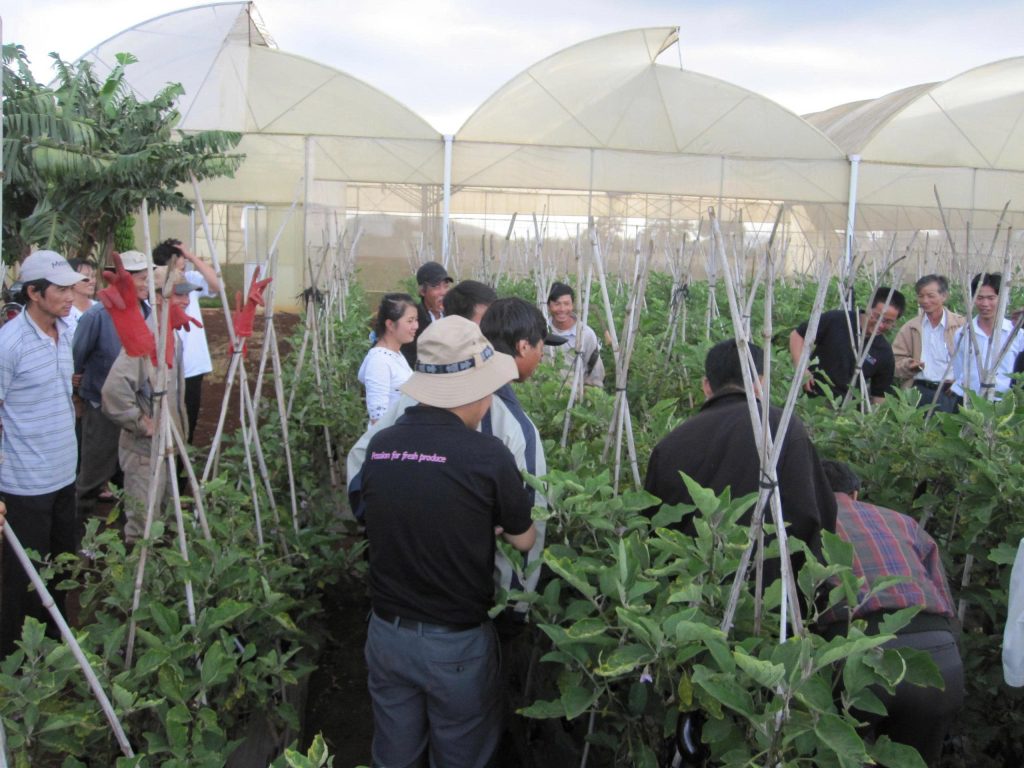Vietnam has high potential to develop into a more professional and higher value agricultural and horticultural economy. The growing population and pace and scope of retail development results in a demand for higher quality products, food safety, stable supply and more up-scaled and sustainable production. To address these challenges 11 companies and institutions joined forces to develop a modern greenhouse vegetable production sector.
Background
Modern greenhouse vegetable production can provide an innovative solution to meet the fast growing demand for high quality, safe and sustainable produced vegetables, which are year round available.
The region around Da Lat City, Lam Dong Province with its unique climate has seen quite some development of greenhouse production in recent years, but the horticulture vegetable production sector is still characterized by a landscape of small producers with no knowledge of modern greenhouse vegetable production or the means to invest in modern greenhouse technologies.
A consortium consisting of Wageningen UR (PPO), Rabo Development (Rabobank), Fresh Studio, BVB Substrates, Da Lat University, HAS Hogeschool Den Bosch, Koppert Biological Systems, RijkZwaan, Ludvig Svensson, YARA, Priva have joined forces with the aim to accelerate the development of a professional greenhouse horticulture sector by:
- Introducing and showcasing of modern greenhouse production technologies in order to obtain higher yield, better quality and more sustainable produce.
- Establishing a platform to facilitate practical training for students and persons working within the horticulture sector
- Providing the means in knowledge and financial support for farmers to invest in modern greenhouse technologies
- Establishing a financial product to support investments in modern greenhouse production by local farmers
Approach
To accelerate the development of a modern greenhouse vegetable sector, the project develops a solution for bottlenecks below:
- Relatively low yield levels;
- Current unsustainable production methods;
- Low percentage of class I products;
- Lack of access by farmers to:
- Means to finance the investment in professional greenhouse production;
- No product differentiation in the market.
- Lack of facilities to train students and extension staff in practice

Outcome
To overcome these bottlenecks the implementation of the following interventions are included:
- Develop training and extension materials for professional greenhouse farmers and extension staff of input or service providers
- Establish professional greenhouse pilot farms and develop the optimal greenhouse production model for the following crops: tomato, sweet pepper and hydroponic lettuce, covering a total production area of 6,000 m2 in Lam Dong province
- The pilot greenhouse will be used as practical training and demonstration centres
- In order to market tomato, sweet pepper and lettuce, a market research will be performed to determine the consumption patterns towards these products.
- Create a brand to market the produced vegetables produced within the project
- In cooperation with banks and investors, develop a horticulture greenhouse financial lease product, which will pre-finance investments of farmers in greenhouses
- Establish a technical support system for introduced hardware
- Create business opportunities for Dutch companies active in the horticulture sector

